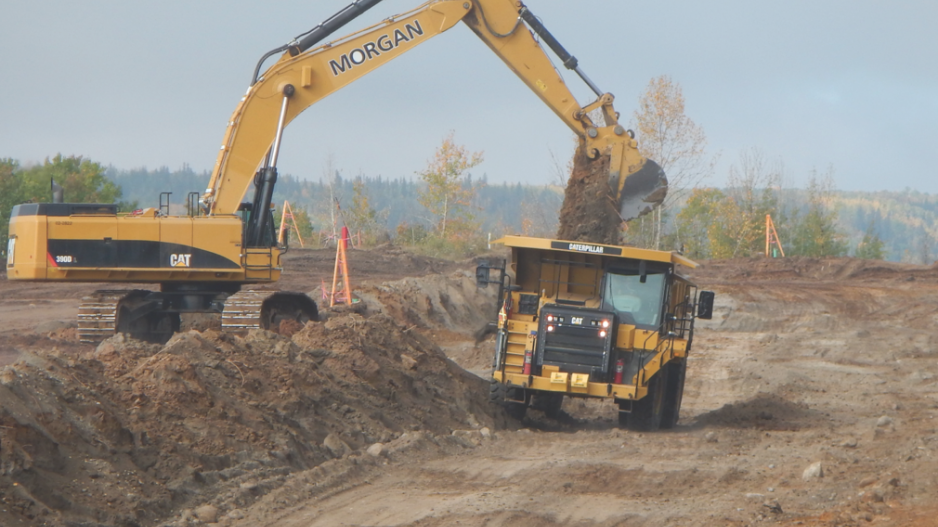Site C could meet its 2024 in-service date on time, even with a one-year delay, but delivering the Peace River dam on budget appears to be in serious doubt, according to a preliminary BC Utilities Commission (BCUC) report published last week.
The project’s budget is $8.3 billion, which doesn’t include a $440 million project reserve that increases it to $8.8 billion. The budget has an additional $794 million contingency built into it. BC Hydro also says it has identified cost savings that raise the contingency to $1.19 billion.
But as the BCUC points out in its September 20 preliminary report, 45% of the $794 million contingency has already been used just two years into an eight-year construction project.
The new BC NDP government asked the BCUC its opinion on whether the project can be built on time and on budget and whether the best option would be to complete the project, cancel it or mothball it.
The BCUC panel estimates that cancelling the project and subsequent remediation would cost $1.1 billion but says it can’t accurately assess the cost of suspending the project.
“Given the lack of clarity with respect to some of the costs, the panel finds it premature to reach a conclusion as to the total costs for the project in the event it is suspended and restarted at a later date,” the report says.
The BCUC has asked BC Hydro to provide more information to fill in “information gaps.”
“After having reviewed BC Hydro’s expenditures and other documentation, the panel finds that it has insufficient information at this point to determine whether the project is within its proposed budget, as of June 30, 2017,” the BCUC states.
The BCUC has already begun holding public hearings to gather feedback to its 205-page preliminary report. It must produce a final report by November 1.
One of the more contentious questions is whether the large hydro project is the least expensive option, and the BCUC report appears to confirm suspicions that BC Hydro stacked the deck in Site C’s favour, although confirming that will require more information from the Crown corporation.
BC Hydro has calculated the per megawatt hour (MW-h) cost of Site C energy to be between $64 and $67, whereas it pegs alternative energy sources like wind power at $110 per MW-h.
The BCUC panel has found BC Hydro’s calculations “not well explained” and has asked for more detail to explain them.
It also said BC Hydro “distorts” the evaluation by ascribing taxpayer subsidies to Site C that independent power producers would not enjoy – creating an “apples to oranges” comparison that could make alternative energy sources such as wind power seem costlier than they might be.
For example, by transferring some financing costs from ratepayers to taxpayers, BC Hydro was able to lower the costs of Site C – a subsidy not available to independent power producers.
“The panel is concerned that if BC Hydro is not applying the same assumed project financing rate to the alternative portfolio,” the BCUC report states, “the result will not be comparable and, furthermore, it assumes that BC Hydro will not be constructing and owning the alternative portfolio.”
BC Hydro’s construction schedule is “more aggressive” than originally proposed – an acceleration that now puts the dam’s completion one year ahead of the original in-service date of 2024. Given the time buffer built into the schedule, the project could still meet that deadline, even if a critical river diversion that must take place in the fall when levels on the Peace River are lower were delayed.
But BC Hydro has estimated the added cost of a one-year delay to be more than $600 million.
“Should there be a one-year delay of the river diversion, the panel is concerned that the project will have consumed its one-year ‘owner’s float,’ although BC Hydro would still have float within specific contractors’ schedules and other contingencies available,” the BCUC warns.
Several submissions point to other large hydro projects that have gone over budget and suggest that Site C is almost certain to do the same. The BCUC rejects those comparisons.
“We do not find that generalized studies or other project comparisons are sufficiently relevant to draw specific conclusions about the Site C project,” it states.
However, a Deloitte report commissioned by the BCUC warns that the project could be up to 50% over budget.
BC Hydro underestimated the $1.75 billion cost of the winning bid for the main civil works contract, and there is insufficient information about the remaining main contracts for building a spillway and generating station to accurately predict BC Hydro’s financial wiggle room.
“Should it have underestimated the cost of the two other major contracts still to be awarded, for the generator station and spillway and for transmission, there may not be sufficient budget contingency remaining,” the BCUC warns.
“My take on the [executive] summary is that the BCUC has not yet addressed the key question about impact on rates,” said Marvin Shaffer, adjunct professor at Simon Fraser University’s public policy program. “It has lots of questions, some quite pointed, but their analysis is not done and what they will ultimately conclude [is] unclear.”
Site C would provide enough new power for about 450,000 homes. B.C.’s population was 4.6 million in 2016, according to Statistics Canada. Its population is projected to grow to 5.2 million by 2024 and 5.5 million by 2030. •




